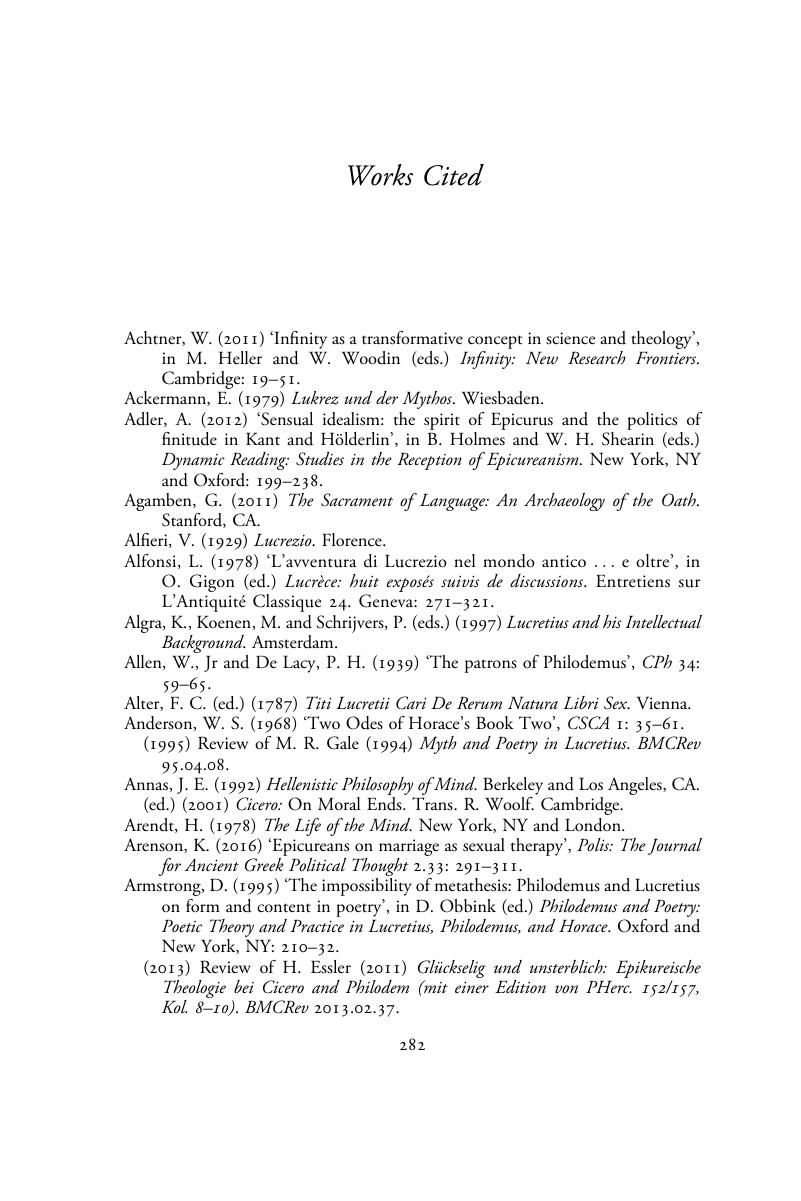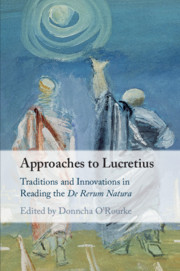Book contents
- Approaches to Lucretius
- Approaches to Lucretius
- Copyright page
- Contents
- Figures
- Notes on Contributors
- Preface
- Abbreviations
- Introduction
- Part I The Text
- Part II Lucretius and his Readers
- Part III The Word and the World
- Part IV Literary and Philosophical Sources
- Part V Worldviews
- Works Cited
- Index Locorum
- Index Rerum
- References
Works Cited
Published online by Cambridge University Press: 25 June 2020
- Approaches to Lucretius
- Approaches to Lucretius
- Copyright page
- Contents
- Figures
- Notes on Contributors
- Preface
- Abbreviations
- Introduction
- Part I The Text
- Part II Lucretius and his Readers
- Part III The Word and the World
- Part IV Literary and Philosophical Sources
- Part V Worldviews
- Works Cited
- Index Locorum
- Index Rerum
- References
Summary

Information
- Type
- Chapter
- Information
- Approaches to LucretiusTraditions and Innovations in Reading the <I>De Rerum Natura</I>, pp. 282 - 312Publisher: Cambridge University PressPrint publication year: 2020
